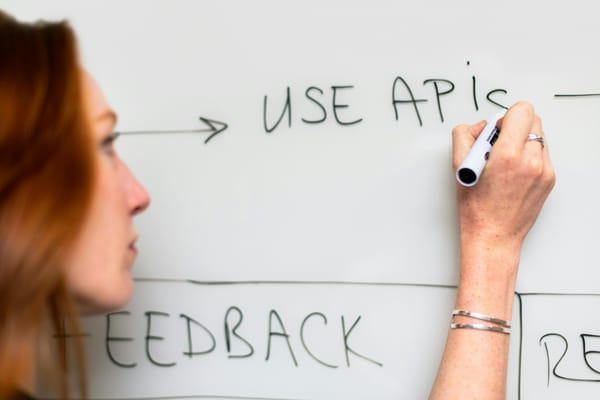The Essentials of MCP in Agentic AI Development
Model Context Protocol is stirring up a new, democratized economy of AI-powered tools. And its path to widespread enterprise adoption is being shaped by the critical work of solving challenges in security, governance, and identity management.

For all their power, most large language models operate with a fundamental handicap: they are disconnected from the real-time data, private databases, and tools that drive modern business. This "last-mile problem" has long been a significant barrier to true enterprise AI adoption, limiting models to generic conversations rather than specific, value-driven tasks.
Model Context Protocol (MCP) provides a strong solution to bridge this gap. Functioning like a universal translator or a USB port for AI, MCP allows any model to securely plug into and interact with virtually any digital tool or data source.
But what does its adoption look like in practice? Based on insights from notable engineering leaders at the forefront of this shift—from API gateways to enterprise software—two major trends are emerging that define the real-world impact of MCP today.
From Productivity Hacks to New AI Economies
MCP provides immediate, practical productivity gains while simultaneously laying the groundwork for new services and business models for AI. On the practical side, organizations are using the protocol to automate historically complex processes for both technical and business teams.
Sai Krishna, Director of Engineering at LambdaTest, explains that his team developed an MCP server to act as an intelligent intermediary for developer onboarding. By scanning a customer's project, it can automatically generate the necessary configuration files, reducing a process that once took days or weeks down to less than an hour.
This kind of empowerment extends beyond developers to business users as well. Karen Ng, SVP of Product and Partnerships at HubSpot, shares how their MCP-driven connector allows marketing and sales teams to resolve their own data queries conversationally, freeing them from a dependency on specialized RevOps teams.
These individual productivity gains are the outcome of a much larger, more democratic shift in how AI tools are created. Greg Jennings, VP of Engineering for AI at Anaconda, views MCP as a standardizing force that is dramatically lowering the barrier to entry for AI development. He remarks that because it allows any tool to "plug into" a model with minimal custom work, individual developers can now create valuable integrations without waiting for large companies to prioritize their specific use case.
And this democratization, according to Michael Pytel, Lead Technologist at VASS, logically gives rise to a new marketplace of monetizable AI capabilities. He envisions an ecosystem where third-party developers can create and sell highly specialized MCP servers, such as a logistics tool that integrates with SAP, creating entirely new revenue paths for the enterprise software community.
Tackling the Challenges of Security and Governance
While MCP unlocks these powerful new capabilities, it also introduces a new class of enterprise-grade challenges that require careful consideration. As AI agents gain the ability to act on behalf of users, the conversation among industry leaders is shifting toward the critical next frontier: ensuring strong security, governance, and control.
A primary concern, especially in high-stakes enterprise environments, is managing identity and permissions. Pytel emphasizes that because these AI agents are extensions of their human users, every action they take must be validated against that user's specific identity and permissions. This prevents the agent from becoming a security vulnerability by accessing or altering data it shouldn't, a crucial consideration for any organization using systems like SAP.
Alongside user governance, securing the MCP server itself from external threats is another foundational requirement. Krishna of LambdaTest warns of emerging risks like prompt injection and notes the importance of architectural patterns, such as running servers remotely, to ensure sensitive customer data is never exposed. He also advocates for a community-driven approach to security, pointing to his team's work in open-sourcing tools (Secure-Hulk) that can scan for common vulnerabilities.
Successfully navigating these complex issues of identity management, architectural security, and ecosystem governance is now the central focus for engineering leaders deploying MCP in production. Doing so correctly is essential for building the trust required for widespread enterprise adoption.
Engineering leaders building with MCP today are not just integrating systems; they are actively defining the best practices and safeguards that will unlock the next wave of trusted, context-aware AI innovation.



